PORTO CANCER MEETING
PREVIOUS EDITIONS
24th PORTO CANCER MEETING 2017
PORTO CANCER MEETING 2017 | MENU
Speakers
24th PORTO CANCER MEETING 2017
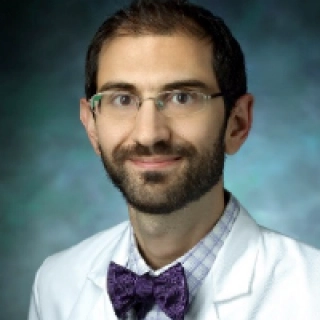
Emmanuel S. Antonarakis
Johns Hopkins Sidney Kimmel Comprehensive Cancer Center
Dr Antonarakis is an Associate Professor of Oncology and Urology at the Johns Hopkins Sidney Kimmel Comprehensive Cancer Center. He graduated from the University of Wales College of Medicine (United Kingdom) in 2003, and then completed a Residency in Internal Medicine at the Johns Hopkins Bayview Medical Center, followed by a Fellowship in Medical Oncology at the Johns Hopkins Hospital. In 2010, he joined the Johns Hopkins faculty as an attending physician and translational researcher. Dr Antonarakis’ clinical interest is the management of prostate cancer and other genitourinary malignancies (cancers of the bladder, kidney and testis).
His research focuses on drug development and clinical trial design for patients with prostate cancer. More specifically, he is interested in developing novel androgen-directed therapies as well as immunotherapies for men with recurrent or advanced prostate cancer. He also has an interest in biomarker development, specifically the clinical validation of the AR-V7 marker. He is currently the PI of several phase II and III prostate cancer trials, and is an active member of the Prostate Cancer Clinical Trials Consortium (PCCTC) and the Eastern Cooperative Oncology Group (ECOG) as well as the NCI Prostate Cancer Task Force and the NCCN Prostate Cancer Panel. He serves on the Editorial Board of several oncology journals, including the Journal of Clinical Oncology. He is the author of over 140 peer-reviewed articles, and several book chapters.
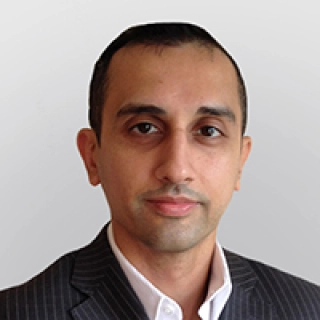
Shobhit Baijal
Heartlands Hospital, Birmingham
Shobhit Baijal is a dedicated Consultant Medical Oncologist based at The Heart of England NHS Foundation Trust. He studied Medicine in London and obtained a BSc Honours in Immunology and Cell Pathology from University College London before graduating with my medical degree from St Bartholomew’s Medical School in 2001. Shobhit Baijal returned to the Midlands to complete his General Medical and Oncology training and took up post as Consultant Medical Oncologist in September 2011. He is the Clinical Lead for Oncology at the Heart of England NHS Trust and actively treats lung and colorectal cancer patients.
He specialises in all forms of cancer drug treatment including chemotherapy, immuno-oncology, precision oncology and chemo-embolisation.
Shobhit Baijal has a large clinical trial portfolio and is the UK Chief Investigator for the international COTEZO trial, manipulating immunotherapies to treat patients with advanced colorectal cancer. He is also a Principle Investigator in National and International lung and colorectal clinical trials and sits on the Roy Castle Lung Cancer Foundation advisory panel.
He is at the forefront of the clinical utility of liquid biopsy in managing lung cancer patients and has several studies underway in this context.
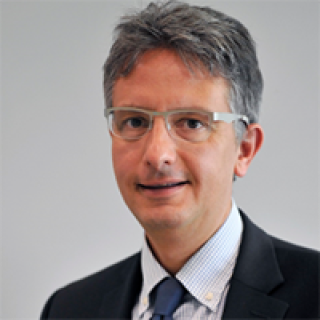
Alberto Bardelli
Candiolo Cancer Institute IRCCS, University of Torino
Associate Professor at University of Torino, Dept. of Oncology and Director of the Laboratory of Molecular Oncology at the Candiolo Cancer Institute-IRCCS, Candiolo (Torino, Italy).
Prof. Bardelli received a PhD in Biochemistry and Molecular Biology at UCL (London, UK) in 1996. As a post doc at the Howard Hughes Medical Institute at the Johns Hopkins University (Baltimore, USA), in the group led by Bert Vogelstein, he has developed the first comprehensive mutational profile of kinases in CRCs.
As an independent investigator Prof. Bardelli has then translated these findings into clinical practice by discovering that K-RAS (B-RAF) mutations impart resistance to EGFR-targeted agents. These findings were later confirmed by independent laboratories with such compelling evidence that they were rapidly translated into clinically applicable predictive biomarkers (genomic signatures) currently used to select patients for anti EGFR therapy.
Recently, Prof. Bardelli’s work has defined mechanisms of acquired resistance to anti EGFR therapies in colorectal cancer patients thus providing insights into new therapies aimed at overcoming resistance. These studies involve an innovative methodology – named liquid biopsy – which allows the use of circulating tumor DNA to monitor patient’s response using a blood draw.
In 2014 he has been listed in the Thomson Reuters List of Highly Cited Researchers (http://highlycited.com/). His H factor is 62.
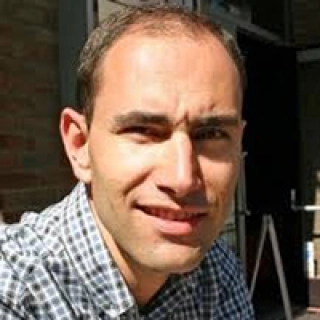
José Luís Costa
i3s – Ipatimup
José Luis Costa carried out his undergraduate studies at the University of Porto in Portugal and obtained his Ph.D. degree in Biology at Uppsala University in Sweden. Prior to joining the Institute of Molecular Pathology and Immunology of the University of Porto (IPATIMUP) in 2006, he carried out postdoctoral research at the Vrije University Medical Center in Amsterdam, The Netherlands. In 2014 he was appointed Affiliated Professor at the Medical Faculty of the University of Porto. He is also Scientific Coordinator of the Genomics Core Facility at the newly established Instituto de Investigação e Inovação em Saúde – i3S. His career has focused on understanding the crucial genetic events that are the basis for the development and progression of cancer. To develop his work, he uses diverse genomic techniques, ranging from basic molecular biology tools to high-throughput technologies. Currently, he aims to deepen his translational research in order to be able to contribute his knowledge of genomics for the benefit of patients through the application of the latest technologies in the diagnosis and the search for precision therapies.
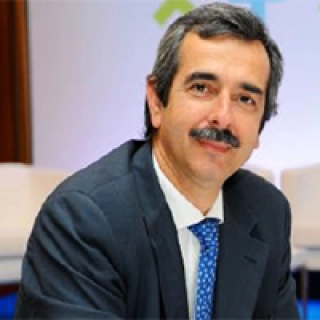
Luís Costa
Lisbon University / Hospital de Santa Maria
Dr Luís Costa is Professor of Medicine at the Lisbon Medical School – University of Lisbon, Portugal and he is the head of the Clinical Translational Oncology Research Unit at IMM since 2007. Dr. Luis Costa serves also as director of Oncology Department at Hospital de Santa Maria in Lisbon since 2005. At the School of Medicine he is the Coordinator Professor of “Oncobiologia” a new teaching unit that aims to teach the understanding of clinical oncology through molecular medicine.
In 2015 Dr. Luis Costa was appointed as director of the Clinical Research Center at the Lisbon Academic Center of Medicine. In 2016, Dr. Luís Costa was elected president of the ASPIC (Associação Portuguesa para Investigação do Cancro”.
Dr. Luis Costa is the IMM Portuguese representative of the Global Cancer Genomics Consortium. Dr. Luis Costa acts also as an expert for grant reviews at the European Research Council, the Cancer Research UK, CAIBER (Spanish Clinical Research Network), and the French National Cancer Institute. Professor Costa’s clinical research, publications and scientific presentations have primarily focused on bone metastases, related to breast cancer, prostate cancer and other solid tumors. He has published various peer-reviewed papers discussing these topics. Dr. Costa is Academic Editor of Plos One and of The Journal of Bone Oncology.
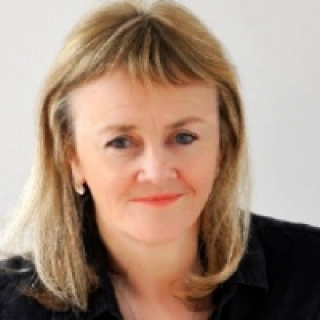
Caroline Dive
Cancer Research UK Manchester Institute
Caroline Dive runs a large multidisciplinary research group (>75 staff) comprised of scientists and clinicians comprised of preclinical pharmacology, circulating cells & proteins and nucleic acids biomarkers research teams. Their preclinical research is focused on developing patient derived models to understand the biology, dissemination and treatment optimization of lung cancer with emphasis on small cell lung cancer. The group also links with clinical colleagues across the UK and globally to evaluate mechanism based therapies in early and late clinical trials with a range of biomarker approaches measured using our a large suite of state of the art technologies. Specifically, the group focus on development, validation and qualification of liquid and tissue biopsies, with a particular emphasis on circulating tumour cells (CTCs) and circulating tumour DNA (ctDNA). Caroline Dive’s group works to Good Clinical Practice for Laboratory (GCPL) standards so that biomarker measurements guide clinical decisions according to EU clinical trials regulations. The research group currently have a portfolio of ~50 clinical trials supported by our biomarker sciences.
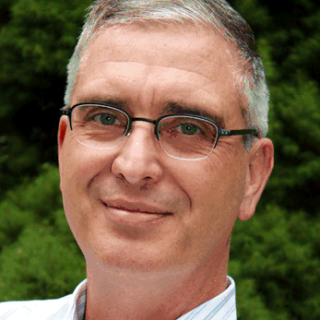
Brian Dougherty
AstraZeneca Oncology IMED Translational Science Group, USA
Brian Dougherty is a Senior Principal Scientist in the AstraZeneca Oncology IMED Translational Science group in Boston, MA. He oversees a team of lab scientists and computational biologists applying leading-edge genetic, genomic, and advanced algorithmic technologies to deliver on Precision Medicine – matching the right patient with the right drug. In 2015, Brian received the AstraZeneca CEO Award and the IMED Science Team Award. He works on cross-functional teams that bring new therapies to cancer patients such as for ovarian cancer (2014) and Tagrisso for lung cancer (2015).
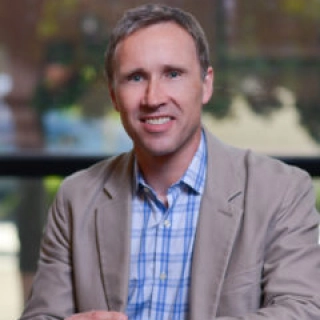
Andy Felton
ThermoFisher, USA
Andy is currently the Vice President of Product Management and Market Development for the Clinical Sequencing Division, responsible for the development and launch of all products related to Ion Torrent NGS systems. Andy began his career at Applied Biosystems UK team in 1994 after completing an undergraduate degree in Chemistry at Liverpool (JM) University and his PhD focused on peptide fragments of Epidermal Growth Factor at Oxford Brooks University. In 1997 he moved to corporate headquarters in California and entered Product Management. During this time Andy was responsible for a number of product lines and launches including the launch of the 7300/7500 and 7500 Fast Real-Time PCR Systems, the 3500 and 3500 Dx Genetic Analyzers, eventually becoming the Director of the Capillary Electrophoresis business. Andy joined Ion Torrent in June 2010 during its start-up phase and subsequent purchase by Life Technologies.
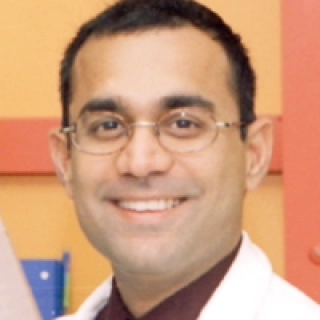
Raghu Kalluri
The University of Texas MD Anderson Cancer Center
Raghu Kalluri was born in St. Louis, Missouri. He received his B.S. in Chemistry and Genetics. He received his PhD in Biochemistry and Molecular Biology from the University of Kansas Medical Center and his M.D. degree from Brown University Medical School. Dr Kalluri was a postdoctoral fellow and a research associate at the University of Pennsylvania Medical School. In 1997, DrKalluri moved to Harvard Medical School as an Assistant Professor of Medicine and as a faculty based in the Department of Medicine at the Beth Israel Deaconess Medical Center. In 2006, this he became the Chief of the Division of Matrix Biology and promoted to Professor of Medicine at Harvard Medical School. He held faculty appointments in the Department of Biological Chemistry and Molecular Pharmacology at HMS, Harvard MIT Division of Health Sciences and Technology and Harvard Stem Cell Institute, and was a research fellow of the HMS Peabody Society. In 2012, Dr Kalluri moved to The University of Texas MD Anderson Cancer Center as the Chairman and Professor of the Department of Cancer Biology and the Director of the Metastasis Research Center. Dr Kalluri currently holds the Olla S. Stribling Distinguished Chair for Cancer Research and previously held the Rebecca and Joseph Brown Endowed Chair at MD Anderson Cancer Center. In 2015 Dr Kalluri received the Jacob Henle Medal from the Georg-August University in Germany to honour his contribution to medical research. He is the recipient of four mentorship and teaching awards from the Beth Israel Deaconess Medical Center and Harvard Medical School. He is also the recipient of several research excellence awards for his work on basement membranes and extracellular matrix as related to fibrosis and cancer progression. He is the fellow of the American Society of Clinical Investigation and the American Association for the Advancement of Science (AAAS). Dr Kalluri has published over 290 peer-reviewed manuscripts. Dr Kalluri has trained 83 postdoctoral fellows/physician-scientists, 11 graduate students, and 56 undergraduate students. Fifty-one of his trainees hold academic positions around the world. Dr Kalluri teaches core courses for graduate students and medical students. He serves on science and health advisory panels in the USA and European Union and on the editorial boards of several academic journals representing biology and medicine. His laboratory is broadly interested in the study of cell and tissue microenvironment and its impact on tissue injury/regeneration and cancer. Recent work from Dr Kalluri’s group unravelled new pathomechanisms of pancreatic cancer and offered insights into novel strategies for diagnosis and treatment of pancreatic cancer.
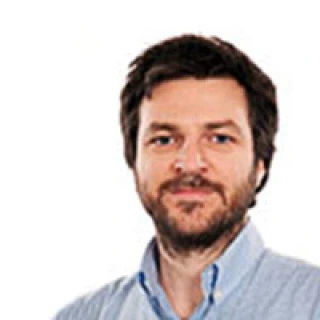
Luca Quagliata
Universitätsspital Basel
Dr. Quagliata is Senior Director of the Contract R&D Unit at the Institute of Medical Genetics Pathology, care of the University Hospital Basel. Dr. Quagliata is formally trained in Medical Biotechnology with a PhD in Vascular Medicine. Since moving back to Switzerland from the National Institute of Health – NIH (Bethesda, USA), Dr. Quagliata originally established the NGS technology at his current Institution in Basel, where is also leading the Molecular Diagnostics Team. Dr Quagliata’s Team has been among the first in Europe introducing Next Generation Sequencing (NGS) in routine Molecular Diagnostics, and applied it to the analysis of Liquid Biopsy with the ultimate goal of enabling Precision Medicine. Nowadays, theMolecular Diagnostics Team represents the lager hospital-based provider of diagnostic sequencing services in Switzerland with thousands of samples analysed using NGS within the last years, and hundreds of Liquid Biopsies.
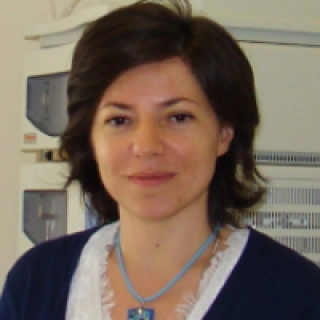
Goreti Sales
BioMark, Sensor Research / ISEP, Porto
Goreti Sales received a 6-year degree in Pharmaceutical Sciences, in 1994, from the Faculty of Pharmacy of Porto University. She received a Ph.D. in Analytical Chemistry, in 2000, from the same university. From 1999 to 2005 she was an Assistant Professor in the School of Engineering of the Polytechnique School of Porto, in the Chemical Engineering Department. Since 2006, she is Adjunct Professor in the same school and has developed in parallel relevant scientific activities in the field of nanotechnology, biosensing and materials. She has an h-index of 18 (Scopus, author ID 7005174717), for a total of 105 indexed publications, with 996 citations.
She is the founder and scientific coordinator of the research unit BioMark, Sensor Research (born in July 2011), which is a pole of the research group CINTESIS of the Faculty of Medicine of the Porto University since 2013. The research activities in BioMark target the development, modification and characterization of (bio)nanomaterials with specific functions and application in Medical and Industrial framework in multiple areas such as Bioengineering, Material Science, Electrical Engineering, Mechanical Engineering and Chemical Engineering. The technical areas involved include Nanoparticles, Nanochemistry, Nanomechanics and Nanotechnology of Biomaterials, with current application in different fields, including (1) Solar Cells and Fuel Cells; (2) Smart Nanomaterials, including Biomimetics applied in biomedicine and (bio)sensors, Selective sensory surfaces applied in (bio)sensors and Actuators sensitive to physical stimuli; (3) and New hybrid devices of sensory capacity. Current team members include 10 post-doctoral, 11 PhD and 1 master students.
From the several funded projects undergoing in BioMark, there are two major ones that are meant to create a new paradigm in biosensing technology. One is a Starting Grant, 3P’s, approved in 2012 by European Research Council, with a budget of 1 million euros (undergoing since February 2013) that she coordinates. This grant targets the development of fully autonomous devices to monitor cancer biomarkers, by merging separate fields of knowledge: Plastic Antibodies, Photovoltaics and Plasmonics. The other project is a FET-Open project, Symbiotic, approved for funding in 2015, with a budget over 3 million euros, by the European Commission, where the same target is to replace the photovoltaic by fuel cells.
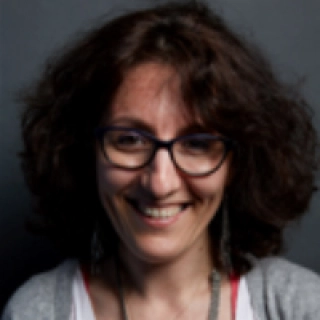
Valerie Taly
CNRS Research Director / Université Paris Descartes
Dr Valerie Taly is a Research Director at the CNRS and group leader of the Translational research and microfluidics group in UPD. Her work aims at combining recent advances in microfluidics and molecular/cell biology to create original tools and strategies for cancer research. Recently, her team developed highly sensitive quantitative procedures for the detection of Cancer Biomarkers. Her actual research is focusing on their clinical validation of the developed procedures, the highlighting of new Cancer Biomarkers and the development of original tools and procedures with applications in personalized medicine and cancer diagnostics.
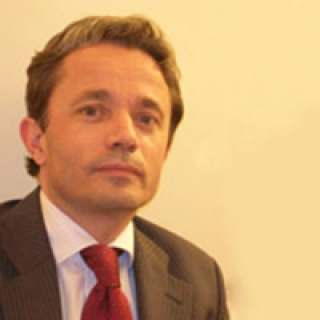
Phillipe Taniere
Queen Elizabeth Hospital Birmingham Medical School
Philippe Taniere graduated in Histopathology (MD) from the University of Lyon, France, in 1995. He obtained a PhD at the Unit of Molecular Carcinogenesis at the International Agency for Research on Cancer, Lyon in 2002. He has been a Consultant Histopathologist at the Queen Elizabeth Hospital of Birmingham since 2002 with an interest in Gastro Intestinal Tract pathology, Hepatobiliary tract tumours, Neuroendocrine tumours and Soft tissue Sarcomas. He is the Clinical Service Lead for Molecular Pathology at the Queen Elizabeth Hospital The Molecular Pathology Diagnostic Services (MPDS) at the Queen Elizabeth Hospital, which is embedded in Histopathology, comprises of 22 full time Scientists and Technicians; The service offers a wide range of analysis including DNA and Microscopy based technologies in tissue samples (immunohistochemistry and FISH); ctDNA testing for EGFR mutation has also been validated.
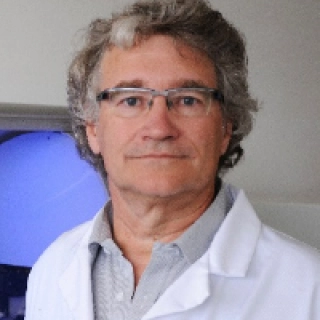
Alain Thierry
Inserm, Université des Sciences de Montpellier
A.R. Thierry research interest focuses on the study of circulating DNA (cfDNA). First on basic research with regards to the structures, origins and functions of cfDNA. Second, on translational research with regards to the diagnostic capacity of circulating DNA and the development of methods towards supporting personalized medicine. A.R. Thierry has coordinated a prospective blinded multi-center studies showing the first clinical validation and demonstration of clinical utility of the plasma DNA analysis in oncology, by detecting point mutations in KRAS and BRAF from colorectal patients. He is one of the world leaders in the clinical application of the analysis of circulating DNA and now he is directing various studies on prognosis, cancer patient follow up and cancer screening. He is Director of Research at the National Institute of Health and Medical Research in Montpellier and the principal founder of DiaDx, a Biotech company devoted to liquid biopsy solutions in oncology.
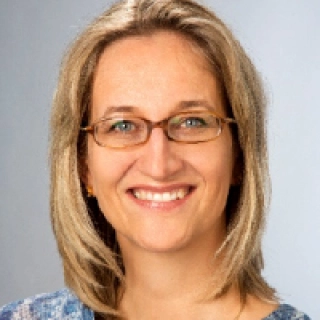
Harriet Wikman
Institute of Tumor Biology, University Hospital Hamburg-Eppendorf
The main research interest of her group is to understand the biology behind the different steps of the metastatic cascade. They are interested in finding genes and pathways important for these processes and to investigate their functions by using both patient material as well as cell-culture based model systems. They are in particular interested in investigating genetic factors leading to early dissemination (i.e. research on circulating and disseminated tumor cells) of both lung and breast tumors, and to better understand the site-specific metastasis such as brain metastasis formation in various epithelial tumors.

